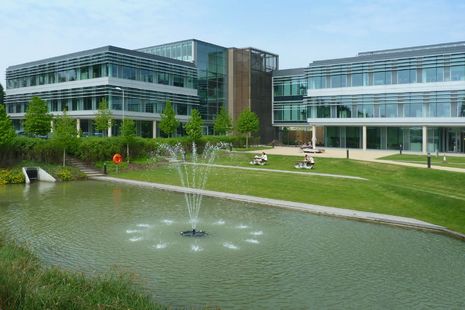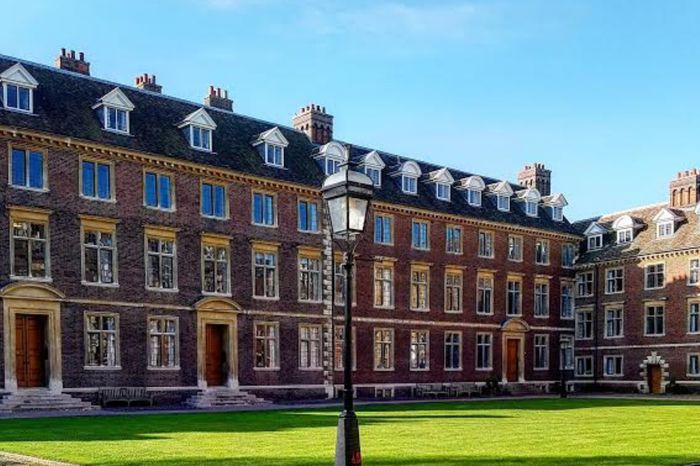Trinity’s plans for eco lab approved despite concerns
The lab will be built in Cambridge Science Park, aiming to improve ‘sustainable growth’

A new five-storey eco laboratory is set to be built in Cambridge Science Park as part of Trinity College’s sustainable investment scheme.
Trinity, who owns the freehold of the site, stated the building is part of its strategy “to continue investing in sustainable growth on the park for the benefit of future generations.”
The architects aim to achieve BREEAM Excellent standard in the sustainability assessment of the building. However, concerns have been raised regarding the practicality and aesthetics of the facility.
The laboratory and office space, designed by Allies and Morrison, is intended to have a net zero carbon footprint due to its insulation system.
Groundbreaking “fabric fins” will also be used to keep the building cool. Other sustainable features include solar panels on the roof.
The building will also include 154 cycle spaces and 50 new car park spaces. However, the proposed two-tier cycle racks have caused concern. Like those at Cambridge Station, they require some strength to operate.
City councillor Dave Baigent suggested the design would discourage people from cycling to work: “If you have any sort of disability, or pains in your back, the double height cycle parking is very difficult to use, and it does not encourage people to cycle.”
Other councillors have also raised concerns about the size of the facility in relation to its surroundings. At a planned 27-metres high, it would dwarf its neighbouring buildings, the Royal Society of Chemistry and Astex Pharmaceuticals.
Councillor Martin Smart said: “This building does stick out, it does not fit well in the context. It may well be that the context is developed in the future, but at the moment it is quite a bit bigger than what is around it.”
Despite these reservations, the building’s plans were unanimously approved by Cambridge City Council and South Cambridgeshire District Council.
Councillors did stipulate that the fins on the façade must be well maintained to “keep the building looking good in future”.
Emma Woods, a spokesperson for Trinity, told the Joint Development Control Committee that the facility would “deliver much-needed flexible research and development space within this highly successful employment allocation.”
“Trinity owns the freehold of the science park and controls a significant number of the buildings and plots as well as the communal estate areas,” she continued.
“The Cambridge Science Park is a very significant long-term investment for the college. The college has owned this land for almost 500 years and considers itself to be a steward of the estate,” Woods said.
 News / Cambridge academics sign open letter criticising research funding changes22 February 2026
News / Cambridge academics sign open letter criticising research funding changes22 February 2026 Features / Beyond the porters’ lodge: is life better outside college?24 February 2026
Features / Beyond the porters’ lodge: is life better outside college?24 February 2026 Theatre / Footlights Spring Revue? Don’t Mind if I Do!25 February 2026
Theatre / Footlights Spring Revue? Don’t Mind if I Do!25 February 2026 News / Cambridge and Manchester Universities meet for innovation partnership26 February 2026
News / Cambridge and Manchester Universities meet for innovation partnership26 February 2026 Fashion / The evolution of the academic gown24 February 2026
Fashion / The evolution of the academic gown24 February 2026










![How to Create an Attractive Freelancer Portfolio [5 Tips & Examples]](https://www.varsity.co.uk/images/dyn/ecms/320/180/2026/02/vitaly-gariev-ho2tNOWZYXM-unsplash-scaled.jpg)